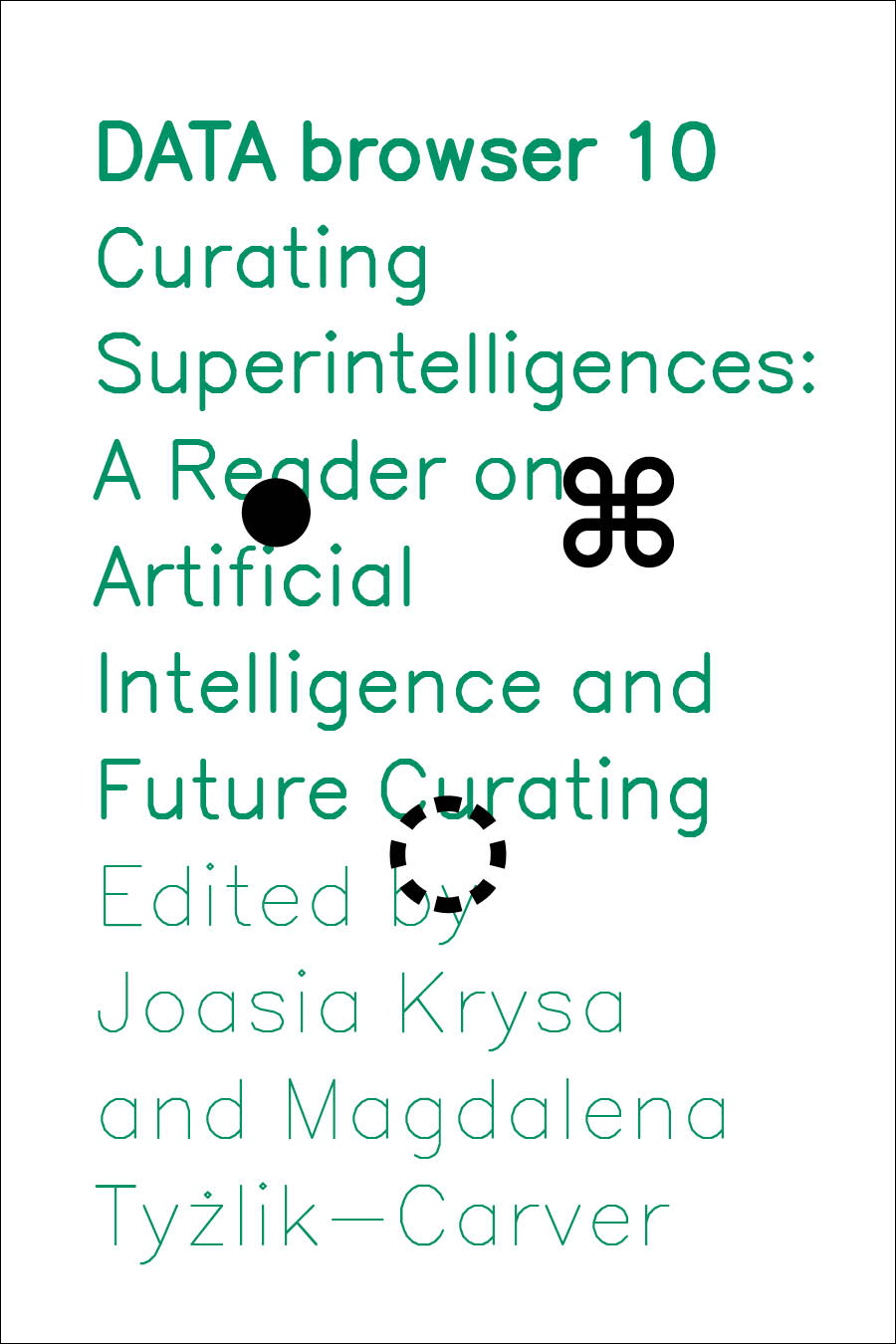
DATA browser 10
CURATING
SUPERINTELLIGENCES: A READER ON AI AND FUTURE CURATING
Edited by
Joasia Krysa and Magdalena Tyżlik-Carver
Published in 2025 by Open Humanities Press
Outline:
This volume addresses a shift in contemporary curatorial field largely attributed to the ubiquitous presence of information and computational technologies, the rapid developments in Artificial Intelligence, and the reclaiming of subaltern knowledges. It poses questions about the implications of these “super-intelligences” for contemporary art and culture, and the new possibilities for curatorial practice and its future forms.
What are the lessons to be learnt? What can the practice of curating learn from AI, what can AI learn from curating, and how can both unlearn knowledges derived from undemocratic, centralised and colonialist frameworks of humans and machines? What kind of future infrastructures and curatorial practices can develop from the coming together of diverse human and non-human entities? What new kinds of curatorial knowledge can emerge from desires to reclaim marginalised categories such as automation, machine, nature, women, black and people of colour, indigenous people, LGBTQIA, from their usual positions in knowledge taxonomies as epistemological objects of study rather than curating subjects? What new understandings, relationships, and new entities can emerge once open to the possibilities afforded by expanded human and machine epistemologies?
The book is part reader and part new commissions, compiled by Joasia Krysa and Magdalena Tyżlik-Carver, with contributions by Dominik Bönisch, CROSSLUCID, Marialaura Ghidini, Olga Goriunova, Francis Hunger, Leonardo Impett, Victoria Ivanova, Eva Jäger, Nathan Jones, Murad Khan, Nora N. Khan, Joasia Krysa, Jason Edward Lewis (Kanaka Maoli/Samoan), Mikhel Proulx, Nicolas Malevé, Gabriel Menotti, Lívia Nolasco-Rózsás, Alasdair Milne, Christiane Paul, Helen V. Pritchard, Tom Schofield, Skawennati (Kanien’kehá:ka), Sam Skinner, Katrina Sluis, Winnie Soon, Gaia Tedone, Suzanne Treister, Magdalena Tyżlik-Carver, Elvia Vasconcelos, Ashley Lee Wong, Mi You, Martin Zeilinger, Gary Zhexi Zhang.
The book expands on Liverpool Biennial’s journal Stages 09: The Next Biennial Should be Curated by a Machine, edited by Joasia Krysa and Manuela Moscoso on the occasion of Liverpool Biennial 2021, and ideas first introduced in DATA Browser 03: Curating Immateriality (2006) edited by Joasia Krysa.